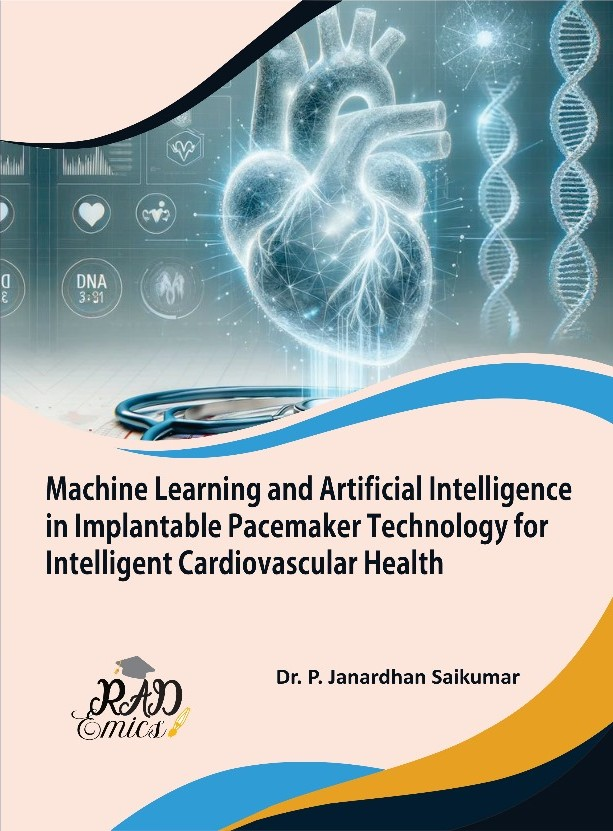
Abstract
The evolution of implantable cardiac pacemakers has significantly enhanced the management of bradyarrhythmias and conduction disorders, yet current follow-up protocols remain largely standardized and reactive. Personalized health profiles and AI-driven risk stratification offer a pathway to transform pacemaker therapy into a dynamic, patient-specific practice. This chapter examines the conceptual and technical foundations for constructing multimodal personalized profiles that integrate continuous device telemetry, wearable data, clinical histories, and genomic information. Advanced machine learning models capable of extracting subtle patterns from this diverse data can predict emerging risks, enabling earlier intervention and improved patient outcomes. Emphasis is placed on the necessity of explainability and transparency to ensure that AI tools are interpretable, trustworthy, and seamlessly integrated into clinical workflows. Privacy-preserving methods, including encryption, secure transmission, federated learning, and differential privacy, address critical challenges in handling sensitive health data while supporting robust decentralized model training. Regulatory frameworks such as GDPR and HIPAA are discussed as essential guardrails for safe implementation. By bridging technology, clinical practice, and ethical safeguards, this chapter outlines a framework for advancing pacemaker management from routine, episodic care to proactive, precision-guided therapy that reflects the unique risk profile of each patient.
Introduction
Implantable cardiac pacemakers represent one of the most significant milestones in the treatment of cardiac conduction disorders [1], offering life-sustaining pacing to millions of patients worldwide. Modern pacemakers have evolved far beyond simple fixed-rate devices [2], incorporating sophisticated sensors, adaptive algorithms, and wireless telemetry that enable remote monitoring of both device performance and patient health status [3]. Despite these technological advances, routine pacemaker management largely relies on standardized follow-up intervals and [4] generalized care protocols that do not always reflect the unique physiological and lifestyle variations of individual patients [5].
The limitations of a “one-size-fits-all†approach are becoming increasingly evident as the complexity of cardiac comorbidities and the diversity of patient populations grow [6]. Traditional risk stratification methods based on periodic device interrogations and clinic visits may fail to detect early signs of arrhythmia recurrence, lead failure [7], or patient non-compliance with treatment recommendations [8]. This gap highlights the urgent need for systems that can integrate and interpret vast streams of heterogeneous data to deliver timely [9], patient-specific insights that guide proactive clinical decisions [10].
Emerging advances in digital health technologies and artificial intelligence offer promising solutions to address this challenge [11]. Continuous remote telemetry, combined with wearable sensors and real-time patient-reported outcomes, generates high-resolution [12], multimodal datasets that can enrich clinical understanding far beyond static snapshots captured during clinic visits [13]. AI algorithms, particularly those leveraging machine learning and deep learning, have shown the capacity to analyze these complex datasets, detect hidden patterns [14], and forecast adverse events before they manifest clinically [15].